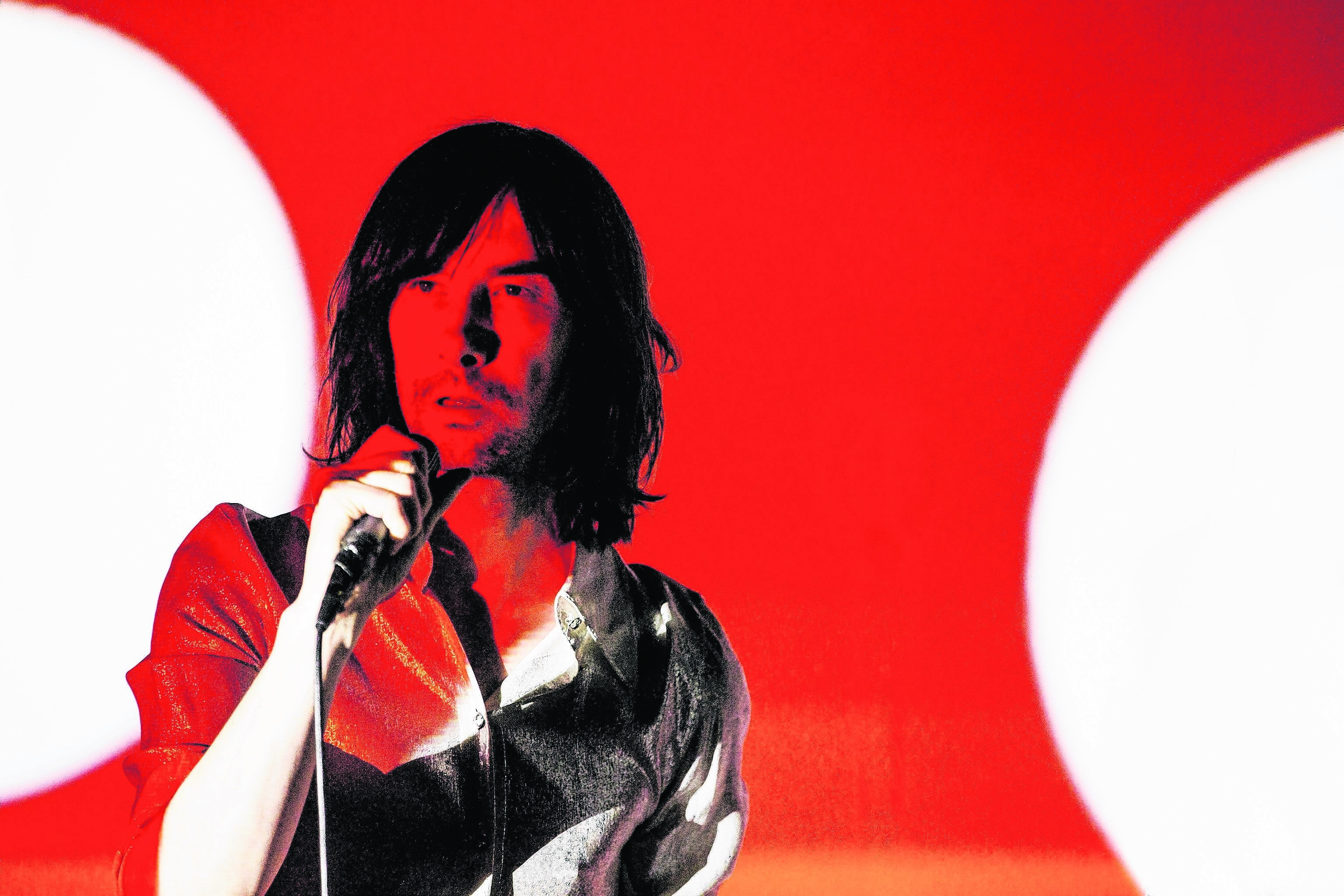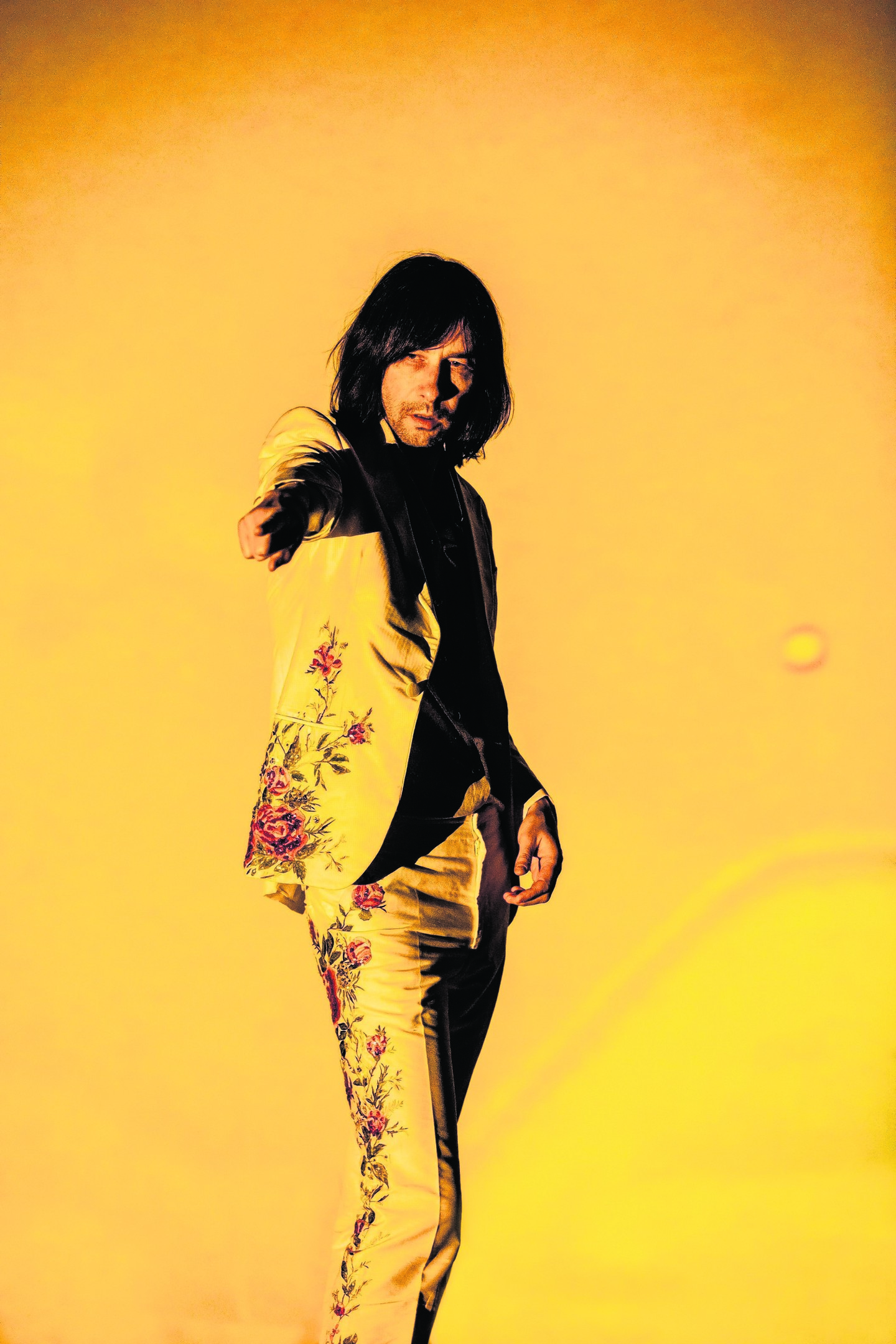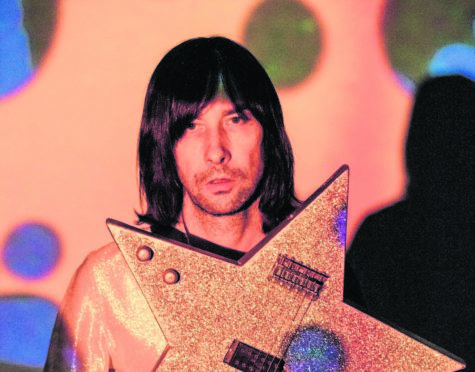Ask Bobby Gillespie how he’s feeling, having just released his 11th album with Primal Scream, and he gives a one-word answer.
“Great.”
Ask if releasing Chaosmosis feels different to the previous 10, and he says he’s not sure how to answer, while asking him to explain how the record might differ from its predecessor, 2013’s More Light, and “They’re all completely different” is his short response.
He is, in fairness, tucked up in bed, full of the cold.
“It’s the warmest place in the house,” he said.
Thankfully, he begins to open up eventually. A little bit.
“We started to make a Primal Scream record, it’s as simple as
that,” says Gillespie, explaining how he and right-hand man
Andrew Innes began work on Chaosmosis.

“We have our own sound now. That happens with good bands when they’re 11 records in. And not many get to 11, baby.”
He says Primal Scream, who released their debut Sonic Flower Groove in 1987, are in it for the long haul.
“Lifers,” he adds. “So many bands released two albums, split up and
reformed 20 years later. But not us.”
He’s equally dismissive of bands who never changed their style of music.
“Andrew and me are born not to repeat ourselves,” he continues, now on something of a roll.
“We just can’t do something again and again. We know who the bands are that do it, but I won’t name them.
“I heard one band on the radio last week who have reformed – they were around in the 90s – and I thought it sounded like the 90s, but I must’ve missed it first time around. Turns out it was their new single.
“I don’t know how they do it. No idea, no imagination. And the lyrics
were probably about the same old
rubbish they were singing about in the 90s. They haven’t progressed as artists.
“I don’t want to talk about other people, but that baffles me. I just want to make contemporary relevant art, that exists now and reflects the way we feel and what’s around us.”
His restless spirit is perhaps why the band have stayed together, through the highs and lows of hit records, changing line-ups and drug addiction.
From one record to the next, Primal Scream have always done things differently. True, there are styles they’ve returned to, such as a Rolling Stones-style barroom rock of Give Out But Don’t Give Up and Riot City Blues – but they were released 12 years apart, with the hugely adventurous trilogy of Vanishing Point, Xtrmntr and Evil Heat in between.

Indeed, their genuine masterpiece, 1991’s Screamadelica, followed their insipid debut and patchy, self-titled second album of hard garage rock. Screamadelica was unexpected, but for many it defined a generation.
“The change between records is always natural,” Gillespie, 53, continues. “It’s always about three months in when I know we’re on to something.
“I remember it dawning on me this time around. We went to the studio in Stockholm one day. We had about eight tracks; we felt good; the songs were good.
“As soon as we get about six songs that sound like they could be on the same album, and that album sounds significantly different from the last, that’s when I know.”
While the band are heading towards their 30th year, Glasgow-born Gillespie maintains that he and the rest of the band, Martin Duffy and Darrin Mooney, feel like a new outfit.
“It’s because this record sounds so fresh. When we’ve played the songs live, it’s felt like we were starting anew.
“Obviously, we’re not a new band, because we’re really good, and when we started, we weren’t. We had the confidence of ignorance and youth, but not the technique. Now we have the confidence of experience and technique, and of being good at writing songs and playing them. We should be after all this time.”
Lyrically, Gillespie has talked previously about how Chaosmosis is a personal collection, which suggests other Primal Scream songs aren’t.
“Ah, that’s just stuff I say in interviews,” he says now, dismissively.
“Listen to Xtrmntr. The song Swastika Eyes is kind of political, anti-military, but the rest of it is very internal.”
He says he’s merely continuing those themes or similar on the new album, but with better articulation.
“I guess it’s just a wound, and I am trying to figure out what’s wrong with me,” he says.
“You know, why do I feel like this? It’s internal, personal stuff. Just
like songs on Vanishing Point, just like songs on Screamadelica, just
like songs on Evil Heat. But people are lazy and it’s easy to say we’re only political.”
Primal Scream play a sold-out gig at Aberdeen’s Beach Ballroom on Tuesday, March 29.
